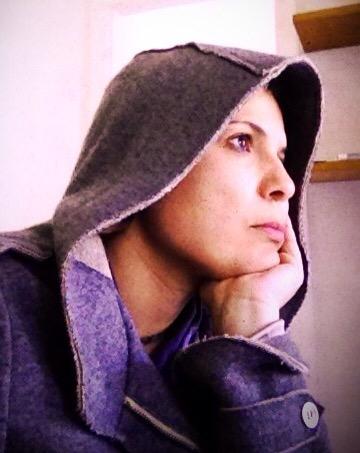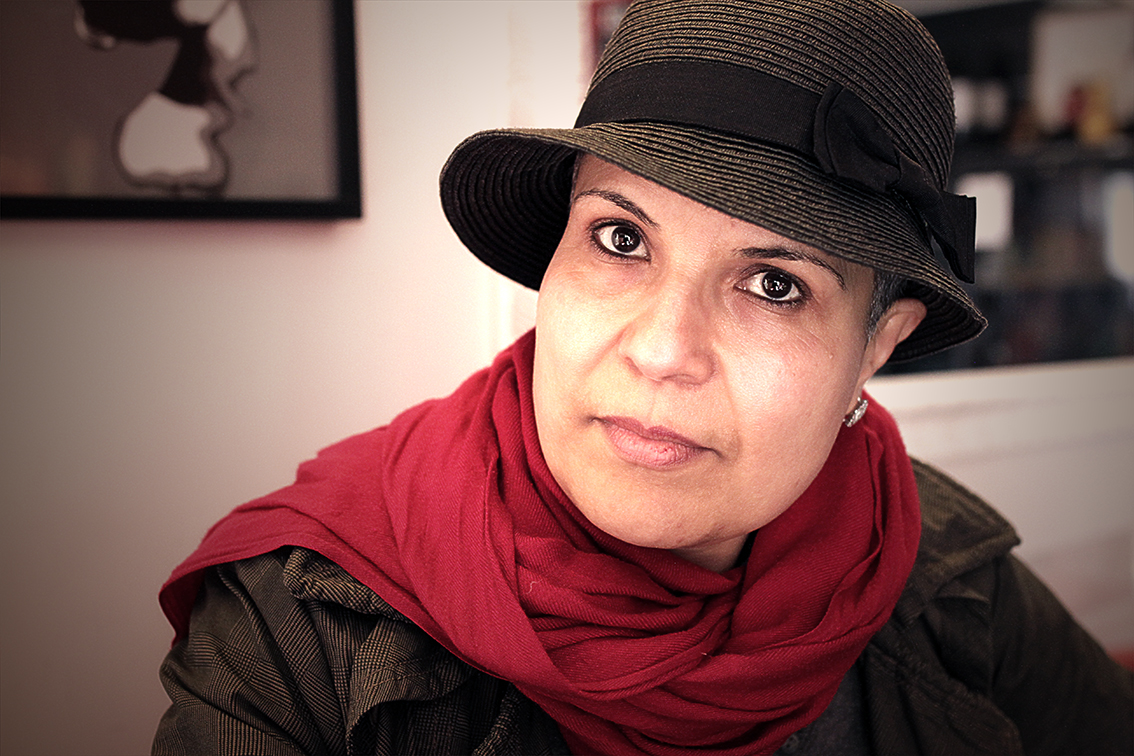Interview with shortlisted author Najwa Binshatwan
10/04/2017

Where were you at the shortlist announcement and what was your reaction?
On the day of the shortlist announcement I decided not to leave my room in Rome. I was a little anxious, so I preferred not to go anywhere as I did with the longlist announcement when I found myself crammed in a metro car amid students returning from a demonstration, with a baguette in my arm, as long as a sword. My only concern at the time was that half of the baguette would not get out of the metro doors, and that I would not get out of the long list. It truly was an absurd scene, so I preferred not to repeat it on the shortlist announcement.
The announcement was a little confusing. A friend of mine told me he’d heard from friends in Algeria that I was on it, but I decided to wait until the official announcement. Then, I was ecstatic that the novel made it to the shortlist. I replied to congratulations and questions on Facebook and in the afternoon I went for a walk near the Tiber and didn’t want to talk to anyone.
What does it mean to you to be shortlisted?
Making the shortlist in itself is a victory, even if I don't win in the end. Shortlisted works have wider readership and garner more attention from the media and public. They get translated, which transports them to other readers and another turf that I need, which will open further horizons in other languages. Overall, it is a huge literary gain.
What are you reading now? Which writers have influenced you as a novelist?
For a month now, I haven’t been reading any novels, only newspaper articles, as I was focused on my PhD thesis since my viva was approaching. And in fact I had it on March 27th.
I have many e-books on my to-read list including this year’s IPAF novels. I will take the time to read them as soon as I put my affairs in order.
There are no particular literary figures I can pinpoint who have had a special or direct influence on me. I believe that every book I read left an impression one way or another even if I didn’t realize it at the time. Literature in translation attracts me more. Overall, I prefer Latin American and Russian literature. And more specifically in Latin American literature, I would choose Marquez for his imagination and Galeano for his ability to predict things.

Why did you choose to write about slavery in Libya now? Do you see any links between that and the present?
Writing about Libya is my ongoing passion. Not a single article or story is free of a mention. It is my inspiration and my preoccupation; rich in details and events although others may not realise it. My works constitute a mosaic of Libya. Then The Slave Pens came to be the larger theme. Perhaps this novel was given an opportunity, not given to my other novels, which made addressing a human issue in Libya a permanent question.
Racism has been and continues to be an ongoing practice which has not disappeared from my life as a person, writer or woman, even when I moved to the West, where I found it in another form.
If I don’t write about it now, I would have written about it before, or later on, particularly, as Libya has only done away with colonialism to enter another dictatorship. Racism is discrimination based on race or class that is made possible when such big events occur in a country.
Racism in my opinion came as a historical and psychological result of slavery upon which the world was founded. There would be no racism if there was explicit slavery; but when slavery is abolished, people resort to racism. Human beings are incredibly cruel and discriminating creatures.
You said in a previous interview that there was no documented historical material on the pens from which to go about writing this novel. How were you able to describe the details of life in the slaves’ pens?
The slaves pens as a place exists and no one has written about it before. I did not find any historical material describing and shedding light on it widely, except for some pictures that were taken by Italians who came to Libya. Those pictures fired my imagination and created a conflict within me. In addition to the collective popular memory of the pens, I went to some old people who knew the neighborhood before it was leveled and asked them to describe it to me. The common description is that it was inhumane, which is why they were called pens. They were indeed pens, separated from Benghazi by a wall which I also saw in the pictures. The pens were not unique and strange, as some also existed within Benghazi, in Kish, which is a gathering of poor people and slaves that is similar to the slaves pens and the Lethama pens.
I went to the place and inspected it in its modern form after it had become an integral part of the city. I parked my car there and walked to the beach and started to imagine how it was over 100 years ago. None of it is left, except for the sea and debris of the stories. I left Libya carrying it in my memory and I wrote it on the other side of the Mediterranean.
You also said in a previous novel that the time of writing this novel was sad and difficult – also due to the sadness of the subject matter itself – and that you found yourself needing to escape it. Does writing generally impact you in this way? Is it a form of therapy?
The year of writing this novel was indeed a difficult one in every way. In addition to the heavy and sad theme, I was also burdened with difficulties and going through a difficult time in being away from my country. I could no longer escape writing it. Killing off some characters and burning the pens was a way to recycle the pain. These scenes had the most impact on me, these characters died in reality then I brought them back fictionally only to kill them again! It was no longer important to distinguish between their pain and my own, it didn’t matter anymore what writing did. Is it a remedy or cause for the pain? I only felt as if I were them and they were me and that the link between us was the Libya which is in despair one era after another.
Me and them, we are just souls suffering in this place that is filled with wounds; in this Libya that is strangely fated.
Read an extract of The Slave Pens below:
Some soldiers hit Aunt Aida with their rifle butts and warned her to move off as she was obstructing their mission against the plague. Giuseppe was in despair, he pulled me away and hid my face in his chest so I would not witness any more. I had become a real orphan. I had lost my root in life at the very moment I discovered it. I missed her as though she had been my mother my whole life, not my aunt. To escape harm and fearful for me from man’s evil she had disguised herself to disguise me. She was my mother, who had stepped into many fires for my sake, not just that final one to rescue the family tree that acknowledged who my father was, and was supported by his cloak, the man’s protection, covering, and honour. She was my mother, whom the burning ground did not allow to come out alive and back to me. I was crying and wailing and Giuseppe took me in his arms in sympathy with my plight, shocked like me by what Aida had said. He told the commander of the medical mission that he would take me in his cart with him.
I shouted the word “Mummy” for the first time in my life: “Mummy, don’t leave me. Mummy, come back. Mummy, don’t go.”
Argh, the misery! I called out what I had lost at the moment I lost it. I was ignorant of what I knew at the moment I was aware of it.
Was it the work of man, or the work of fate?
Read this interview in Arabic here
